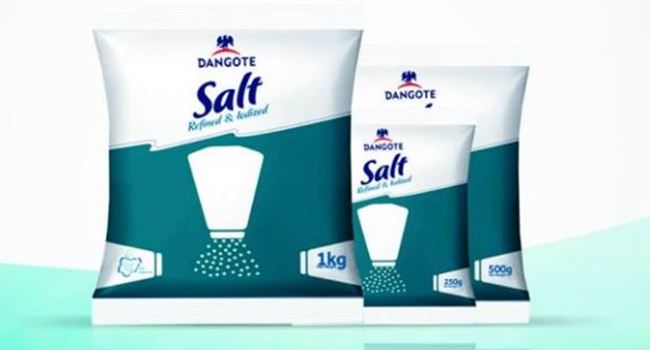Business
Soaring cost of doing business shrinks NASCON’s profit by 56% despite increased revenue

National Salt Company of Nigeria (NASCON), a member of the Dangote Group of companies, has declared a 56% plunge in its after-tax profit for Full-Year 2019 relative to the figure it recorded in the same period of 2018.
This and other details of the firm’s Key Performance Indicators (KPIs) are published in its Unaudited Financial Statement for the Year Ended 31 December, 2019, posted on the website of the Nigerian Stock Exchange (NSE) today.
Revenue rose by 7%, rising from N25.769 billion at FY2018 to N27.576 billion at FY2019.
Profit Before Tax (PBT) tumbled by 55.7% to N2.855 billion at FY2019 from N6.449 billion in the corresponding period of FY2018.
Profit for the Period cratered to N1.941 billion at FY2019 from N4.420 billion at FY2018, which translated to a 56% fall.
The steep decline in NASCON’s profit derived principally from its escalating Cost of Sales, which leapt by 20.4% from N17.989 billion at FY2018 to N21.653 billion in the same period of 2019.
Similarly, Administrative Expenses expanded from N1.868 billion at FY2018 to N2.027 billion at FY2019, signalling an 8.51% growth.
Earnings Per Share (EPS) fell to N1.02 at FY2019 from N1.91 at FY2018.
Read also: SAHCO declares N530.2m profit
NASCON’s outstanding shares currently stand at 2,649,438,378 valued at 39,741,575,670.
Established as a salt refining firm in 1973, NASCON has metamorphosed with the passage of time to diversify its business into the production of vegetable oil, tomato paste and seasoning.
NASCON has maintained a consistent dividend-paying culture since 2008 by rewarding investors with cash dividend every year.
There is a huge possibility, therefore, that the company will declare a dividend any moment from now.
NASCON currently trades on the floor of the NSE at N15 per share.
Earnings Per Share is the profit that each unit of a company’s ordinary shares yields during a particular period. It is simply calculated by dividing the Profit After Tax by the company’s total outstanding shares. Increase in a company’s EPS often reflects an improvement in its bottom-line while a fall, on the other hand, indicates a declining profit.
Join the conversation
Support Ripples Nigeria, hold up solutions journalism
Balanced, fearless journalism driven by data comes at huge financial costs.
As a media platform, we hold leadership accountable and will not trade the right to press freedom and free speech for a piece of cake.
If you like what we do, and are ready to uphold solutions journalism, kindly donate to the Ripples Nigeria cause.
Your support would help to ensure that citizens and institutions continue to have free access to credible and reliable information for societal development.
























